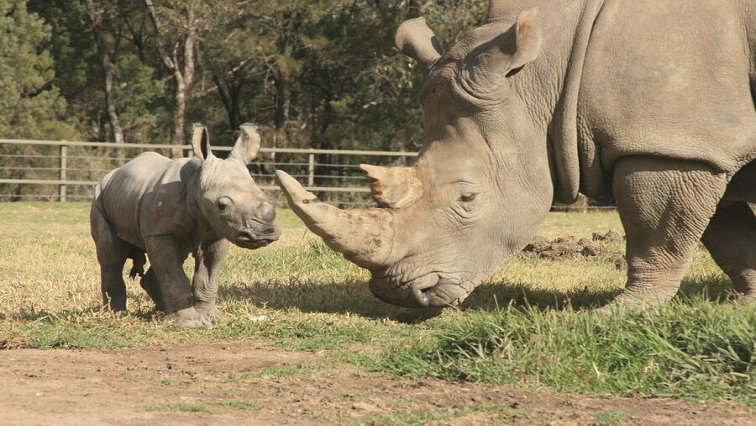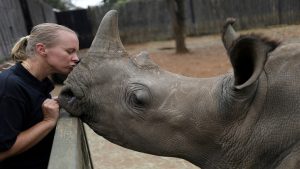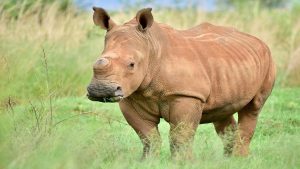Science will now play a key role in the protection of rhinos against rampant poaching. A pioneering project, involving radioactive isotopes, is under way in the Eastern Cape.
The aim of the project is to decrease the value and demand of rhino horns in the black market. This will be done by making the horn radioactive, without posing danger to the animal or its surroundings. The origin of a horn can also be pinpointed through its isotope marking.
Inserting radioactive isotopes into the horn will significantly lower demand reduction in places such as Vietnam and China – two of the biggest consumers of rhino horn.
Despite these interventions, the safety of the animals remains a priority.
“As much as we using these rhinos as apart of our experiment to protect the rhinos, nothing that is inserted into them is harmful to them or the horn. In our research, we made sure that we prioritised the wellbeing and safety of the rhino above all,” says Rosatom CEO, Ryan Collyer.
South Africa is home to 90% of the world’s population of rhinos. Due to poaching, only 16 000 are left.
Co-founder of the Rhisotape project, Professor James Larkin, says rhinos are a precious part of the country’s heritage and, as such, should be preserved.
“These animals are such a precious part of this countries heritage and it needs to be preserved for future generations. If we continue the way we are doing, these animals will be extinct and not only will we lose an animal, but we would’ve also lost an animal that contributes a lot to job creation through tourism; from tourist who come and see these rare and beautiful animals, to the rangers that are employed on game farms to take care of these animals, We just can’t afford to lose them,” says Professor Larkin.
This project is first of its kind in the country. Those experiencing it are elated.
“It was such a lovely experience to get to touch the rhino and even feel its heartbeat. It’s then I got to realise that this animal actually has a personality, a life that matters that can’t be left to die in the hands of poachers. These rhinos are not just animals, but they are part of this country’s heritage for future generations,” says one tourist.
“It was such a lovely life changing experience for me to see all the work that people are putting in to take care of the rhinos. It really showed me how important these animals are to our ecosystem and how we need to do all we can to protect them against poachers. These rhinos are also part of the big five, probably one of the reason tourist flock to South Africa. So, if there are all killed, the tourism in this country will die too,” says another tourist.
Rhino poaching incidents have not occurred in the Eastern Cape since 2020. It’s hoped this new initiative will keep it that way.
There is also a call for more education on rhino poaching.
Efforts to save the Rhino against poaching:




